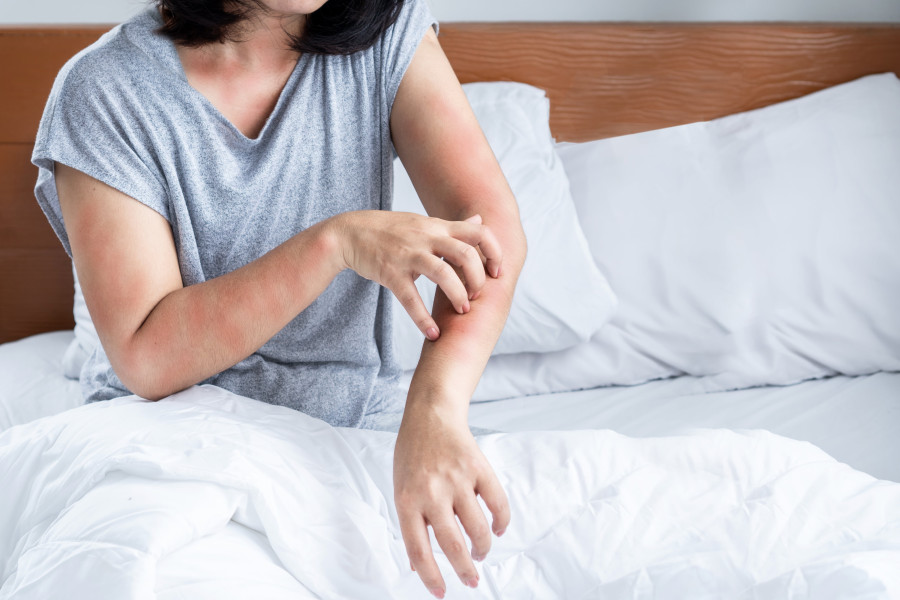Culture & Lifestyle
Protecting your skin in a polluted city
Dr Mohan Bhusal explains how pollution affects our skin and what we can do to reduce its effects.
Anish Ghimire
In recent years, Kathmandu has witnessed a steady rise in pollution levels, posing significant threats to both public health and the environment. While the adverse effects of pollution are widely acknowledged, its impact on skin health is often overlooked. Yet, as pollution levels soar, so do concerns about the well-being of our skin.
The situation is further exacerbated by the harsh climatic conditions prevalent in Kathmandu, with dry air and extreme temperatures exacerbating the effects of pollution on skin health. Additionally, the lack of adequate skin care measures and awareness among the populace exacerbates the impact of pollution on skin health
Dr Mohan Bhusal explains how pollution affects our skin and what we can do to combat it. Bhusal is a Consultant Dermatologist and laser and hair transplant expert at Miracle Skin Hair And Aesthetic Clinic.
How does pollution affect our skin?
Our skin, the outer layer of our body, is directly affected by changes in the environment. Air pollutants like ultraviolet radiation, polycyclic aromatic hydrocarbons, volatile organic compounds, oxides, particulate matter, ozone, and cigarette smoke cause oxidative stress, producing harmful free radicals. This leads to skin ageing and various inflammatory or allergic skin issues. Pollution can block our pores, increase debris on our skin and accelerate skin damage. People exposed to pollutants tend to show more signs of premature ageing. Pollution can worsen certain skin conditions such as acne, hyperpigmentation, eczema and psoriasis.
How do we care for dry patches forming in the skin due to pollution?
Pollution not only affects the appearance of your skin but also accelerates its wear and tear, leaving it prone to dryness and dehydration. This can result in a lacklustre complexion with dry, dull and uneven patches. To combat these effects, it’s crucial to take proactive measures to protect and nourish your skin.
One effective strategy is to incorporate gentle, moisturising products into your skincare routine. Opt for a moisturising Syndet bar instead of traditional soap, as it helps retain the skin’s natural oils without stripping away moisture. Additionally, choose a moisturiser tailored to your specific skin type and apply it regularly to keep your skin hydrated and supple.
Hydration is key to maintaining skin health, so be sure to drink plenty of water throughout the day. Hydrating from the inside out helps replenish lost moisture and supports overall skin function. Additionally, incorporate antioxidant-rich foods into your diet, such as fruits, vegetables, nuts, and seeds. Antioxidants help combat the damaging effects of pollution and free radicals, promoting healthier, more radiant skin from within.
How does pollution affect the health of our hair?
Just as the skin is affected by environmental factors, the hair is also directly exposed to the outside elements. Pollution can cause harm to various components of the hair, including the protective cuticle, the inner cortex and the keratin proteins that form its structure. This damage can manifest as breakage, a brittle or straw-like texture, weakened strands and overall dryness.
The accumulation of air pollutants on the scalp can lead to discomfort such as itching and irritation, as well as an increase in sebum production and the occurrence of dandruff. These issues can result in the clogging of hair follicles, weakening of the hair at the root, and an increased susceptibility to breakage and shedding.
Are there any specific products or ingredients that can protect the skin from pollution?
There aren’t any particular items, but following a basic skincare routine can address the issue. The key steps are cleansing, moisturising, and protecting from the sun. Always clean your face with a suitable face wash, and consider double cleansing if needed.
Apply a quality moisturiser to repair your skin from daily damage. Use a broad-spectrum sunscreen with at least SPF 30 that matches your skin type. Also, consider using physical barriers like masks, sunglasses and long sleeves to shield your skin from pollutants.
Are there any lifestyle changes or habits that can help minimise the impact of pollution on our skin?
Try to limit your time outdoors, especially during peak pollution hours. When you do go out, protect yourself with physical barriers such as masks, sunglasses, and clothing with long sleeves. Stick to your daily skincare routine without fail.
Additionally, incorporate antioxidant-rich foods like nuts and green vegetables into your diet, and make sure to stay hydrated by drinking plenty of water. These habits will help keep your skin healthy and resilient against environmental stresses.




 14.12°C Kathmandu
14.12°C Kathmandu















